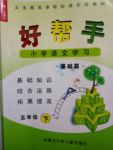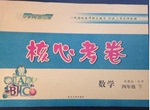题目内容
3.In the United States alone,over 100million cell-phones are thrown away each year.Cell-phones are part of a growing mountain of electronic waste like computers and personal digital assistants.The electronic waste stream is increasing three times faster than traditional garbage as a whole.Electronic devices contain valuable metals such as gold and silver.A Swiss study reported that while the weight of electronic goods represented by precious metals was relatively small in comparison to total waste,the concentration (含量) of gold and other precious metals was higher in So-called e-waste than in naturally occurring minerals.
Electronic wastes also contain many poisonous metals.Even when the machines are recycled and the harmful metals removed,the recycling process often is carried out in poor countries,in practically uncontrolled ways which allow many poisonous substances to escape into the environment.
Creating products out of raw materials creates much more waste material,up to 100times more,than the material contained in the finished products.Consider again the cell-phone,and imagine the mines that produced those metals,the factories needed to make the box and packaging(包装) it came in.Many wastes produced in the producing process are harmful as well.
The U.S.Environmental Protection Agency notes that most waste is dangerous in that"the production,distribution,and use of products-as well as management of the resulting waste-all result in greenhouse gas release."Individuals can reduce their contribution by creating less waste at the start-for instance,buying reusable products and recycling.
In many countries the concept of extended producer responsibility is being considered or has been put in place as an incentive (动机) for reducing waste.If producers are required to take back packaging they use to sell their products,would they reduce the packaging in the first place?
Governments'incentive to require producers to take responsibility for the packaging they produce is usually based on money.Why,they ask,should cities or towns be responsible for paying to deal with the bubble wrap (气泡垫) that encased your television?
From the governments'point of view,a primary goal of laws requiring extended producer responsibility is to transfer both the costs and the physical responsibility of waste management from the government and tax-payers back to the producers.
58.By mentioning the Swiss study,the author intends to tell us thatB.
A.the weight of e-goods is rather small
B.E-waste deserves to be made good use of
C.natural minerals contain more precious metals
D.the percentage of precious metals is heavy in e-waste
59.The responsibility of e-waste treatment should be extendedB.
A.from producers to governments
B.from governments to producers
C.from individuals to distributors
D.from distributors to governments
60.What does the passage mainly talk about?D
A.The increase in e-waste.
B.The creation of e-waste.
C.The seriousness of e-waste.
D.The management of e-waste.
分析 文章主要介绍了电子垃圾的产生、危害以及相关解决措施.随着电子数码科技的进步,产生了越来越多的电子垃圾.手机、电脑和电子元器件等被越来越多地扔掉,里面含有像金银之类的贵金属,但也含有大量的有毒物质,作者详细地分析了造成这一问题的原因,并提出了坚决问题的建议和措施.
解答 58.B 推理判断题.文章第一段告诉我们,每年有大量废弃电子产品被随意丢弃.紧接着第二段首句"Electronic devices contain valuable metals such as gold and silver."指出:电子设备中含有有用的金属,如金和银,并用Swiss study佐证这一观点,据此可知作者想要告诉我们,电子垃圾值得被充分运用.故答案选B.
59.B 细节理解题.文中六、七、八段围绕"生产责任延伸"展开,最后一段做了总结.根据最后一段的"a primary goal of laws requiring extended producer responsibility is to transfer both the costs and the physical responsibility of waste management from the government and tax-payers back to the producers."可知处理电子垃圾的责任应该从政府延伸到用户身上.故答案选B.
60.D 主旨大意题.这篇短文主要讲述了电子垃圾被随意丢弃这一现象,文中详细分析了造成这一问题的原因,并提出了建议.故答案选D"电子垃圾的管理".而其余三项都只是概括了文章的部分内容,并不能概括全文.
点评 健康环保类文章常是介绍科学知识、生活常识和环境保护方面的短文.阅读此类短文要以现象或事物为中心进行思考,理解现象产生的原因、条件和客观规律等.同时要抓住事物的特征、用途和相互关系等.由于此类文章缺乏故事情节,很多同学对此类文章感到费解.文章都是就事论事,需要逻辑推理和想象的时候较少,因此此类阅读题也没有同学们想象中的那么难,只要多加训练,就能较好地答题.

 小学学习好帮手系列答案
小学学习好帮手系列答案 小学同步三练核心密卷系列答案
小学同步三练核心密卷系列答案country by storm,which is partly designed to arouse people's ______ in Chinese.( )
| A. | response | B. | enthusiasm | C. | significance | D. | consequence |
| A. | defeat | B. | gets defeated | C. | was defeated | D. | will defeat |
| A. | Fortunately | B. | Surprisingly | C. | Disappointedly | D. | Importantly |
| A. | However | B. | Otherwise | C. | Instead | D. | Therefore |
| A. | shouldn't | B. | mustn't | C. | wouldn't | D. | couldn't |